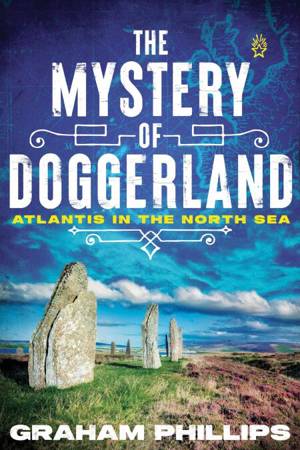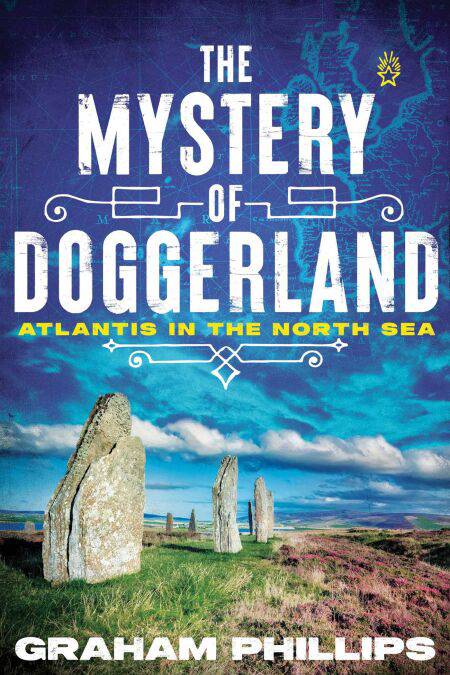
- Retrait gratuit dans votre magasin Club
- 7.000.000 titres dans notre catalogue
- Payer en toute sécurité
- Toujours un magasin près de chez vous
- Retrait gratuit dans votre magasin Club
- 7.000.0000 titres dans notre catalogue
- Payer en toute sécurité
- Toujours un magasin près de chez vous
15,65 €
+ 15 points
Format
Description
A scientific exploration of the advanced ancient civilization known as Doggerland or Fairland that disappeared 5,000 years ago
• Looks at the latest archaeological and scientific evidence preserved beneath the North Sea and on the tiny island of Fair Isle
• Examines Doggerland’s sophisticated technology, including how its people were able to melt solid rock to create vitrified structures far stronger than concrete
• Shows how the survivors of the destruction of Doggerland sailed to the British Isles and established the megalithic culture that built Stonehenge
New marine archaeological evidence has revealed the remains of a large landmass to the north of Britain that hosted an advanced civilization 1,000 years before the recognized “first” civilizations of ancient Egypt, Mesopotamia, or India. Remembered in Celtic legends as Tu-lay, and referred to by geologists as Doggerland or Fairland, this civilization began at least as early as 4000 BCE but was ultimately destroyed by rising sea levels, huge tsunamis, and a terrible viral epidemic released from melting permafrost during a cataclysmic period of global warming.
Exploring the latest archaeological findings and recent scientific analysis of Doggerland’s underwater remains, Graham Phillips shows that this ancient culture had sophisticated technology and advanced medical knowledge. He looks at evidence detected with remote sensing and seismic profiling of many artificial structures, complex settlements, gigantic earthworks, epic monoliths, and huge stone circles dated to more than 5,500 years ago preserved beneath the ground and on the ocean floor. He also looks at the small part of the Fairland landmass that still exists: Fair Isle, a tiny island some 45 miles north of the Orkney Islands of Scotland. Phillips shows how, when Fairland sank beneath the waves around 3100 BCE, its last survivors traveled by boat to settle in the British Isles, where they established the megalithic culture that built Stonehenge.
Revealing the vast archaeological evidence in support of the existence of Doggerland, as well as its threads of influence in early cultures around the world, Phillips also shows how the fate of this sophisticated ancient culture is a warning from history: the cataclysmic events that happened to the first civilizations could happen again as the world heats up.
• Looks at the latest archaeological and scientific evidence preserved beneath the North Sea and on the tiny island of Fair Isle
• Examines Doggerland’s sophisticated technology, including how its people were able to melt solid rock to create vitrified structures far stronger than concrete
• Shows how the survivors of the destruction of Doggerland sailed to the British Isles and established the megalithic culture that built Stonehenge
New marine archaeological evidence has revealed the remains of a large landmass to the north of Britain that hosted an advanced civilization 1,000 years before the recognized “first” civilizations of ancient Egypt, Mesopotamia, or India. Remembered in Celtic legends as Tu-lay, and referred to by geologists as Doggerland or Fairland, this civilization began at least as early as 4000 BCE but was ultimately destroyed by rising sea levels, huge tsunamis, and a terrible viral epidemic released from melting permafrost during a cataclysmic period of global warming.
Exploring the latest archaeological findings and recent scientific analysis of Doggerland’s underwater remains, Graham Phillips shows that this ancient culture had sophisticated technology and advanced medical knowledge. He looks at evidence detected with remote sensing and seismic profiling of many artificial structures, complex settlements, gigantic earthworks, epic monoliths, and huge stone circles dated to more than 5,500 years ago preserved beneath the ground and on the ocean floor. He also looks at the small part of the Fairland landmass that still exists: Fair Isle, a tiny island some 45 miles north of the Orkney Islands of Scotland. Phillips shows how, when Fairland sank beneath the waves around 3100 BCE, its last survivors traveled by boat to settle in the British Isles, where they established the megalithic culture that built Stonehenge.
Revealing the vast archaeological evidence in support of the existence of Doggerland, as well as its threads of influence in early cultures around the world, Phillips also shows how the fate of this sophisticated ancient culture is a warning from history: the cataclysmic events that happened to the first civilizations could happen again as the world heats up.
Spécifications
Parties prenantes
- Auteur(s) :
- Editeur:
Contenu
- Nombre de pages :
- 224
- Langue:
- Anglais
Caractéristiques
- EAN:
- 9781591434245
- Date de parution :
- 24-07-23
- Format:
- Ebook
- Protection digitale:
- Adobe DRM
- Format numérique:
- ePub

Les avis
Nous publions uniquement les avis qui respectent les conditions requises. Consultez nos conditions pour les avis.






